The challenges for democracy after the attack on Miguel Uribe Turbay, less than a year before the elections

The three shots fired at Senator and presidential candidate Miguel Uribe Turbay —which are also three direct attacks on Colombian democracy—and the escalating violence in Cauca and Valle de Cauca represent a harsh warning for a country that is less than a year away from going to the polls to renew Congress and elect a President of the Republic.
As in the worst years of the 1980s and 1990s, hitmen attacked a candidate for the nation's highest office, taking advantage of serious weaknesses in his state-appointed protection scheme.
Hundreds of cell phone and security camera videos captured both the attack and the anguish that followed , the capture of the hitman, and the efforts of the senator's companions to save his life. The assassination of Luis Carlos Galán, perpetrated by the mafia in August 1989, and that of Luis Donaldo Colosio in Mexico, five years later, came to mind for millions of people who lived through those moments of crisis more than three decades ago.
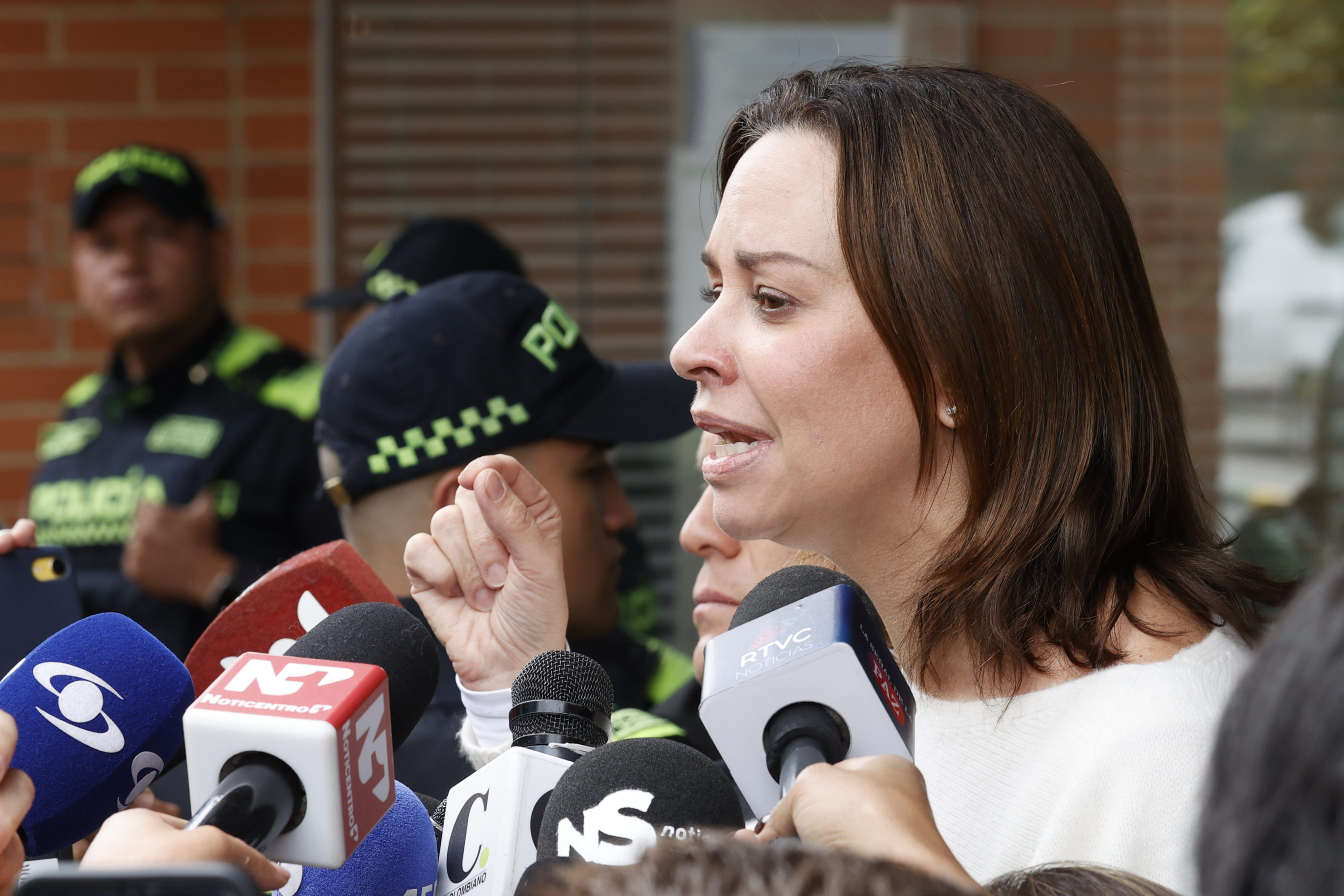
María Claudia Tarazona, wife of Senator Miguel Uribe Turbay. Photo: EFE
All this comes at a time when public order and "total peace," one of the government's flagship projects, remain in crisis and when the political and institutional climate has reached its most critical point.
During the crisis of the late 1980s, when, in addition to Galán, candidates Carlos Pizarro and Bernardo Jaramillo Ossa were assassinated, the country understood that it was necessary to prevail over small interests and unite against violence. But in the Colombia of 2025, the call to tone down political confrontation and to surround institutionality has found no echo, starting with the Casa de Nariño. On the contrary, confrontation has increased between public powers.
The attack on the Democratic Center parliamentarian on Saturday, June 7, during a political rally in the Modelia neighborhood, paralyzed an electoral contest that has been marked by polarization.
Most candidates expressed solidarity with Uribe Turbay and suspended campaign activities. Few pre-candidates registered this week, when an avalanche of official pre-candidacy announcements were expected. A general call was to avoid politically exploiting the attack on the parliamentarian, although both sides accused each other of profiting from the tragedy.
The strained atmosphere will have an impact on next year's elections. "Today we feel anger and sadness, but we must process these emotions without losing sight of the nation, to remain united and build healthy environments of coexistence and democratic discussion. I propose an agreement between the pre-candidates and candidates to moderate their words and reduce the verbal violence that leads to physical violence," says former senator and constituent member Humberto de la Calle.
For analyst Eduardo Pizarro, one of the most respected voices in Colombian academia, there are two sides to the post-attack scenario: one sector calling for the construction of basic national consensus and a reduction in aggressive language, and a second line of action, which is to deepen political polarization in order to favor certain candidates. "There are two currents: one that radicalizes the situation and the other that reduces tensions. That will continue throughout this year," he affirms.
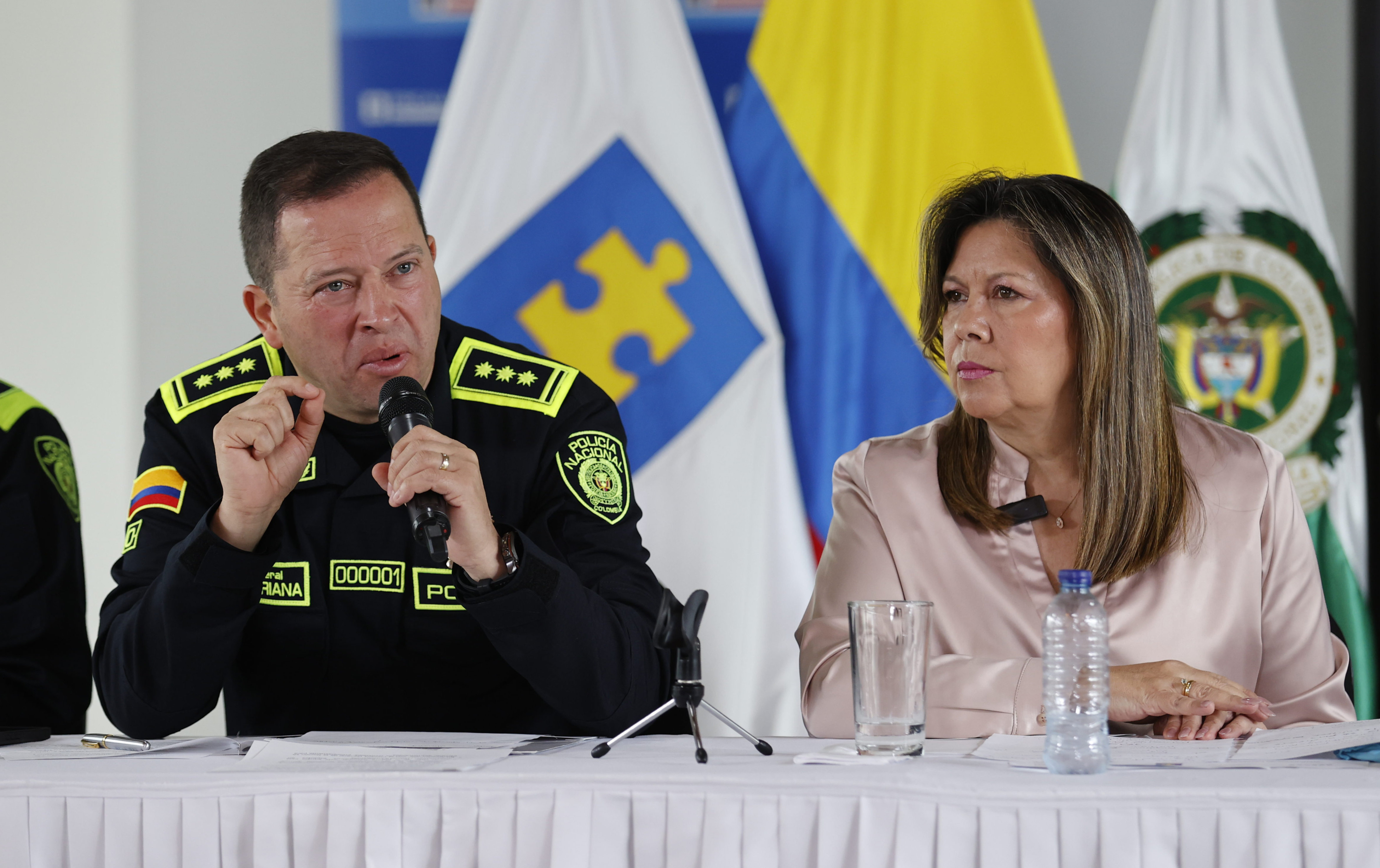
Police Director Carlos Triana, along with prosecutor Luz Adriana Camargo. Photo: EFE
The analyst, brother of Carlos Pizarro, adds: "If the first current triumphs, the one that calls for reducing aggressive language and achieving certain basic consensus through democratic coexistence, Colombia can successfully overcome this moment. If, on the other hand, the current that calls for heightened tensions triumphs, it seems to me that democracy will be at serious risk. What surprises me most is that the current that calls for consensus is gaining more and more supporters, even within the Historic Pact. Moderate sectors of the ruling party don't want to play into polarization. That calls for relative optimism."
The investigation into the attempted murder continues to advance. The Prosecutor's Office is now seeking to determine who hired the hitmen who carried out the crime, for which two arrests have already been made.
While the investigative body remains cautious, President Petro has suggested that both the attack and this week's terrorist escalation—one of the worst in recent years, which left nine dead and dozens injured in the southwest of the country—are connected and supposedly seek to destabilize his government. This theory doesn't seem to align with the progress of the investigation.
In his speeches this week, Petro has acknowledged his administration's responsibility for the evident failure to provide physical protection to one of his main opponents. He even suggested alleged police infiltration, which also included elements in the senator's protection scheme. But beyond these events, which are under investigation by the Attorney General's Office and the Prosecutor's Office, analysts point out that the climate of political tension and discrediting of the opposition generated by the President's Casa de Nariño and the president's social media accounts, coupled with the empowerment of armed organizations due to the weaknesses of both the security strategy and the "total peace" plan, are factors that are increasingly weighing on the development of the 2026 political campaigns.
Campaign on hold "You can't seek votes while this is happening," said Senator Paloma Valencia, who is competing with Uribe—as well as María Fernanda Cabal, Paola Holguín, and Andrés Guerra—for the Democratic Center's endorsement. It wasn't just the solidarity event that suspended the election. Fears of more attacks forced the candidates to rethink their agendas and demand the reinforcement of their security measures.
But while solidarity grew among presidential candidates, from all political persuasions, confrontation also intensified. Amid calls for a broad national political pact to curb political violence, tensions continued to escalate in both the Casa de Nariño and Congress.
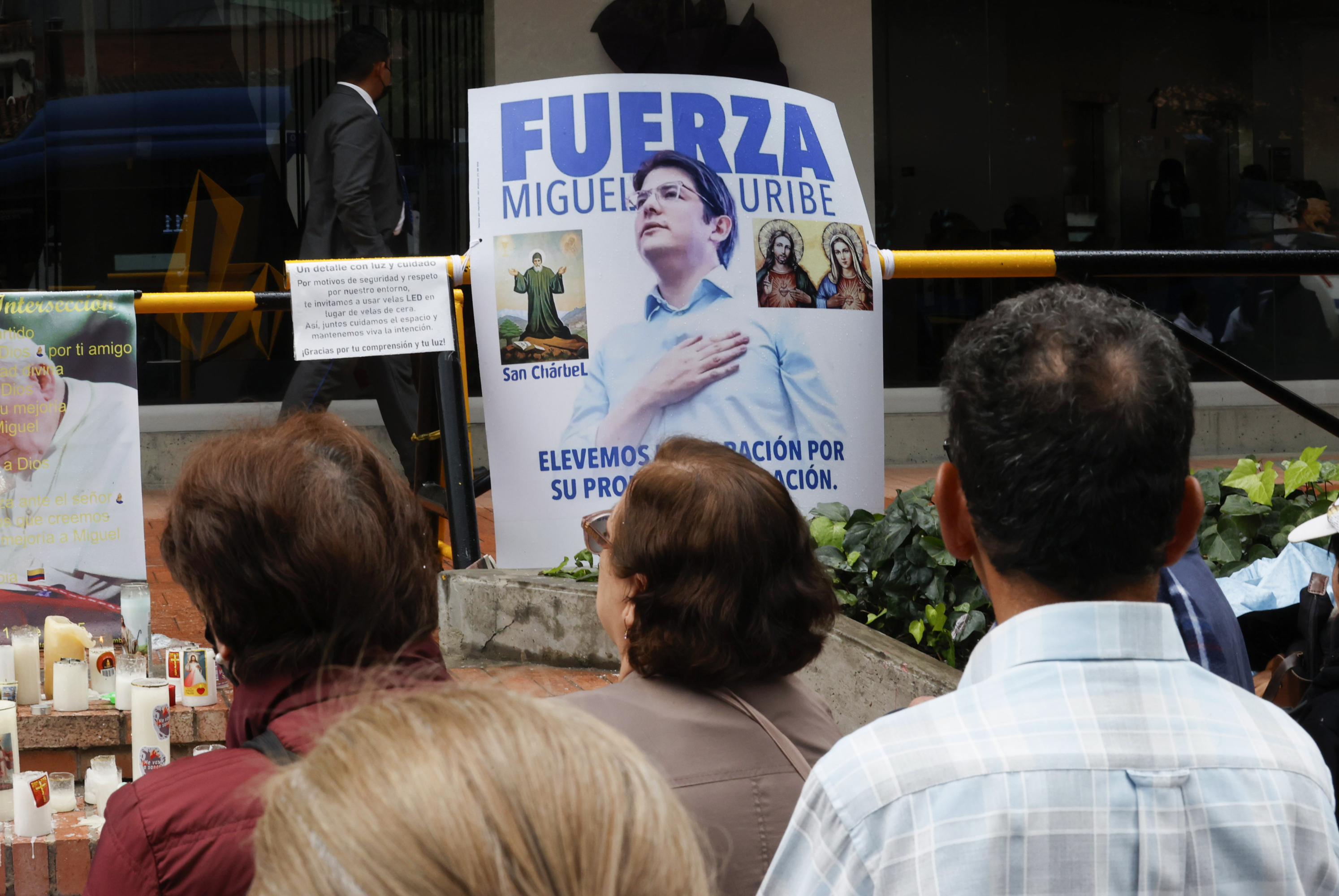
Prayer sessions for Miguel Uribe's health are being held at the Santa Fe Clinic in Bogotá. Photo: EFE
Nine political parties, including the government's staunchest opponents, disavowed Interior Minister Armando Benedetti and the head of state as guarantors of democracy and refused to attend the National Committee on Electoral Guarantees. "Fear, uncertainty, polarization, and the audacity of crime have hijacked national life, sowing insecurity in all areas of our society. Far from calming this crisis, the National Government, led by President Gustavo Petro, seems determined to exacerbate it. Its insistence on deepening polarization, fomenting confrontation, ignoring institutions, singling out opponents, and disqualifying those who dissent only aggravates the social and political divide that consumes us," reads a statement from the Conservative Party, the Democratic Center, the Liberal Party, the Party of the "U," Radical Change, Mira, ASI, the League of Anti-Corruption Governors, and Colombia Justa Libres.
It wasn't a statement made in vain. Although he had promised to moderate his statements and called for national unity against the mafia, Petro attempted to link the current situation to the collapse of the labor reform in March, which, incidentally, has now been revived. "The current climate of tension arose when eight senators from the Senate's Seventh Committee decided, without discussion, to scuttle the labor reform approved in the House of Representatives," the head of state asserted on his X account.
"Don't be so mean and irresponsible. After the seriousness of what happened to Miguel Uribe, you keep putting a tombstone on the members of Commission VII. How many more congressmen have to be shot to make you happy?" asserted Liberal Senator Miguel Ángel Pinto, one of the key figures in shelving the bill. Following the approval of an appeal, the bill could be approved by the Senate plenary on Monday, with only its conciliation pending.
Call for dialogue The week in which terrorism once again struck democracy closed with the decree of the referendum and, furthermore, with the President's threat that if the courts reject that call—a highly probable scenario given the government's evident overreach of constitutional norms—he would even resort to a constituent assembly.
While Petro and his new Justice Minister, Eduardo Montealegre, are betting on raising the confrontational tone, Interior Minister Armando Benedetti says his boss is willing to meet with all former presidents to establish rules for political debate. He has also said that the consultation would be included in the Executive's plan if Congress approves the labor reform that the Palace wants: the one coming from the Chamber of Deputies.
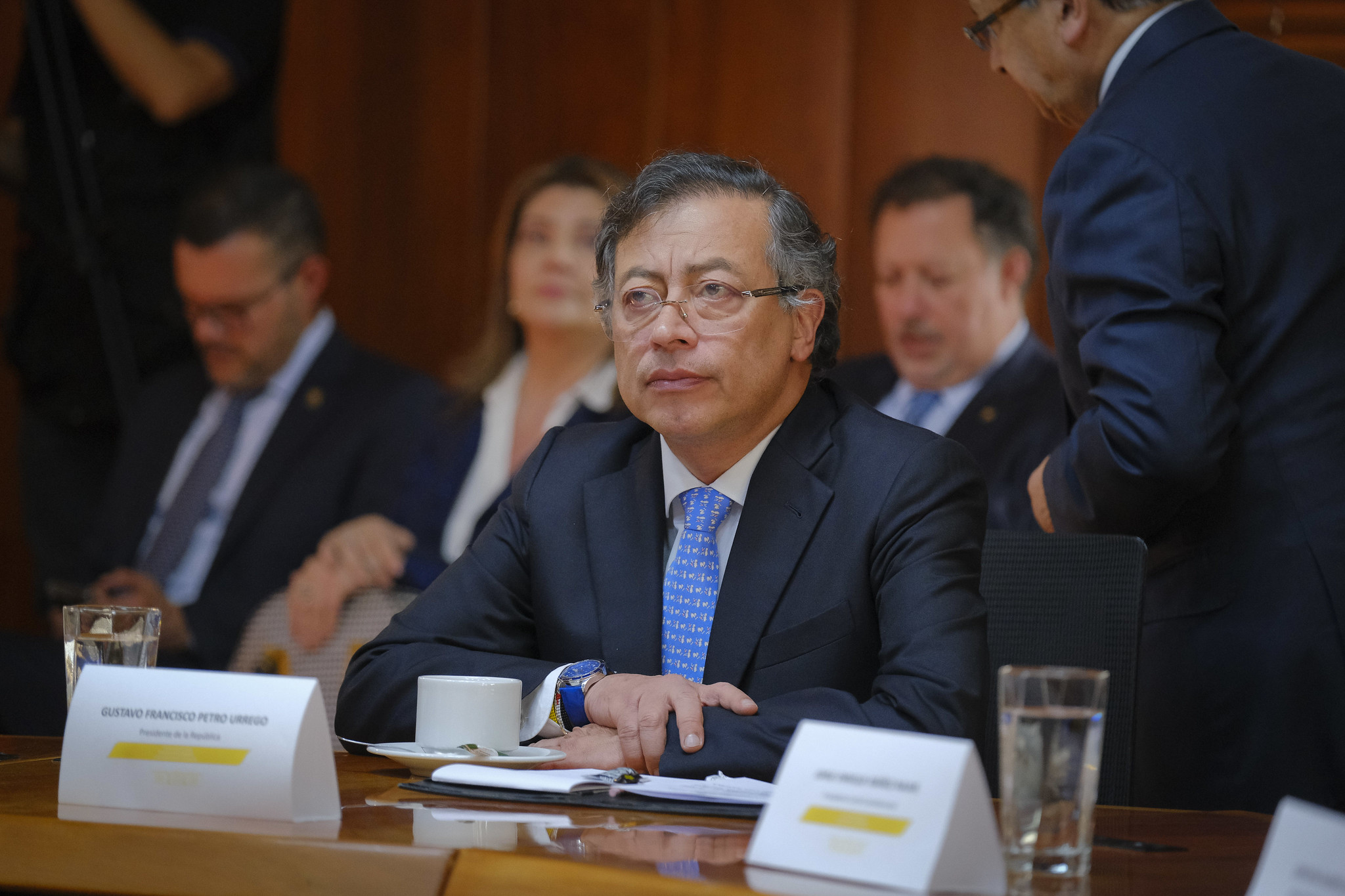
President Gustavo Petro condemned the attack on Miguel Uribe. Photo: Ovidio Gonzalez. Presidency
"We are willing to talk to them, to tone things down, to establish minimum rules to prevent what the violent groups are seeking from happening: us killing each other," said the head of the political portfolio, currently the president's right-hand man.
The parties, who distrust the government, called on Attorney General Gregorio Eljach, "everyone's friend," to be the guarantor and bridge to reach agreements that would protect the elections and provide guarantees to all stakeholders. And Eljach responded. Eighteen hours after the parties' call, he convened the National Commission for Electoral Surveillance and Control, and the head of the Public Ministry's plan is to pursue a strategy called "electoral peace."
Voices continue to come from all sectors calling for the preservation of institutionality. The governors, for example, called on national leaders, starting with President Gustavo Petro, to rise to the occasion. “As regional leaders, we urge all Colombians, especially public officials and various political actors, to join forces to responsibly and respectfully undertake a national dialogue centered on institutional unity. It is urgent to de-escalate the language that leads to political violence and the aggressive tone that only sows hatred, fear, and polarization,” stated the National Federation of Departments.
“This country has always risen to the occasion against criminals. This will be no exception,” said the Speaker of Congress, conservative Senator Efraín Cepeda. Former President Álvaro Uribe, leader of the Democratic Center, ordered the party to remain calm, and from then on, the tone has been non-confrontational. “In this difficult time, let us stand in solidarity with Miguel. No provocations or temptations,” said the former president. This attitude was emphasized by Benedetti: “I have highlighted the attitude of the Democratic Center and President Álvaro Uribe, who have remained prudent in this situation. This is not the time for insinuations or conjectures that distance us from the truth.”
A week after the attack, Colombians are calling today for a "great silent march" to reject the violent protesters and show solidarity with Miguel Uribe, whose seat, now empty, bears the Colombian flag.
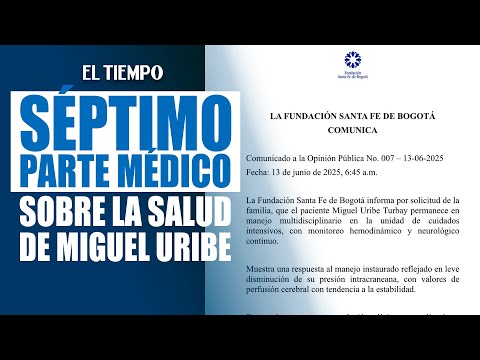
Seventh medical report on Miguel Uribe's health. Photo: EL TIEMPO
eltiempo




